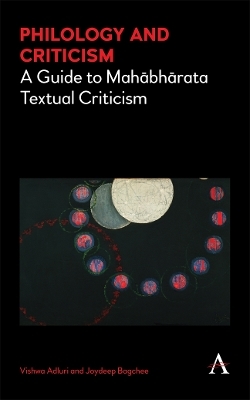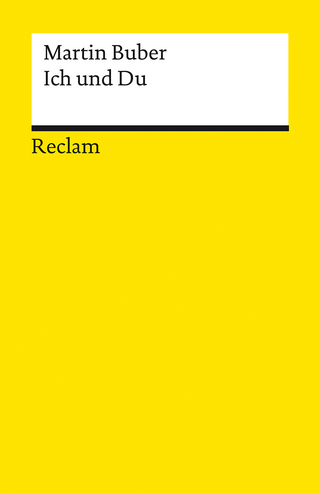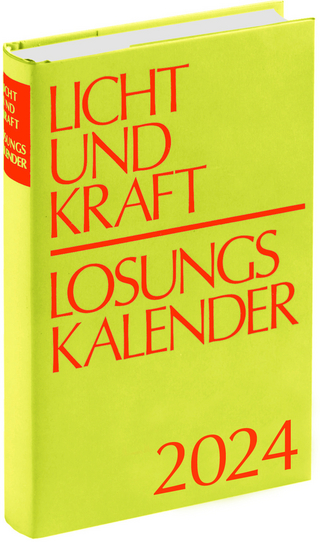
Philology and Criticism
A Guide to Mahābhārata Textual Criticism
Seiten
2018
Anthem Press (Verlag)
978-1-78308-576-7 (ISBN)
Anthem Press (Verlag)
978-1-78308-576-7 (ISBN)
The first book to present a comprehensive review of the Mahābhārata Critical Edition, with overviews of stemmata (textual trees), how the logic of the stemmata determined editorial choices, and an in-depth analysis of the edition’s strengths and drawbacks. An invaluable asset to any scholar working contemplating serious work on the Mahābhārata.
Philology and Criticism contrasts the Mahābhārata’s preservation and transmission within the Indian scribal and commentarial traditions with Sanskrit philology after 1900, as German Indologists proposed a critical edition of the Mahābhārata to validate their racial and nationalist views. Vishwa Adluri and Joydeep Bagchee show how, in contrast to the Indologists’ unscientific theories, V. S. Sukthankar assimilated the principles of neo-Lachmannian textual criticism to defend the transmitted text and its traditional reception as a work of law, philosophy and salvation. The authors demonstrate why, after the edition’s completion, no justification exists for claiming that an earlier heroic epic existed, that the Brahmans redacted the heroic epic to produce the Mahābhārata or that they interpolated “sectarian” gods such as Vis.n.u and Śiva into the work. By demonstrating how the Indologists committed technical errors, cited flawed and biased scholarship and used circular argumentation to validate their racist and anti-Semitic theories, Philology and Criticism frees readers to approach the Mahābhārata as “the principal monument of bhakti” (Madeleine Biardeau). The authoritative guide to the critical edition’s correct use and interpretation, Philology and Criticism urges South Asianists to view Hinduism as a complex debate about ontology and ethics rather than through the lenses of “Brahmanism” and “sectarianism.” It launches a new world philology—one that is plural and self-reflexive rather than Eurocentric and ahistorical.
Philology and Criticism contrasts the Mahābhārata’s preservation and transmission within the Indian scribal and commentarial traditions with Sanskrit philology after 1900, as German Indologists proposed a critical edition of the Mahābhārata to validate their racial and nationalist views. Vishwa Adluri and Joydeep Bagchee show how, in contrast to the Indologists’ unscientific theories, V. S. Sukthankar assimilated the principles of neo-Lachmannian textual criticism to defend the transmitted text and its traditional reception as a work of law, philosophy and salvation. The authors demonstrate why, after the edition’s completion, no justification exists for claiming that an earlier heroic epic existed, that the Brahmans redacted the heroic epic to produce the Mahābhārata or that they interpolated “sectarian” gods such as Vis.n.u and Śiva into the work. By demonstrating how the Indologists committed technical errors, cited flawed and biased scholarship and used circular argumentation to validate their racist and anti-Semitic theories, Philology and Criticism frees readers to approach the Mahābhārata as “the principal monument of bhakti” (Madeleine Biardeau). The authoritative guide to the critical edition’s correct use and interpretation, Philology and Criticism urges South Asianists to view Hinduism as a complex debate about ontology and ethics rather than through the lenses of “Brahmanism” and “sectarianism.” It launches a new world philology—one that is plural and self-reflexive rather than Eurocentric and ahistorical.
Vishwa Adluri holds PhDs in philosophy, Indology and Sanskrit from the New School for Social Research, Philipps-Universität Marburg and Deccan College. He teaches at Hunter College, New York, USA. Joydeep Bagchee has a PhD in philosophy from the New School for Social Research and teaches at Ludwig-Maximilians-Universität, Munich, Germany.
List of Illustrations; Foreword; Preface; Acknowledgments; Prologue; Chapter Summaries; Introduction Ad Fontes, Non Ultra Fontes!; Chapter One Arguments for a Hyperarchetypal Inference; Chapter Two Reconstructing the Source of Contamination; Chapter Three Confusions Regarding Classification; Conclusion: Textual Criticism and Indology; Epilogue; Appendices; Glossary; Annotated Bibliography; Index.
| Erscheinungsdatum | 03.08.2018 |
|---|---|
| Reihe/Serie | Cultural, Historical and Textual Studies of South Asian Religions |
| Zusatzinfo | 82 Figures + Tables |
| Verlagsort | London |
| Sprache | englisch |
| Maße | 153 x 229 mm |
| Gewicht | 454 g |
| Themenwelt | Religion / Theologie ► Christentum ► Gebete / Lieder / Meditationen |
| Religion / Theologie ► Christentum ► Kirchengeschichte | |
| Geisteswissenschaften ► Religion / Theologie ► Hinduismus | |
| ISBN-10 | 1-78308-576-2 / 1783085762 |
| ISBN-13 | 978-1-78308-576-7 / 9781783085767 |
| Zustand | Neuware |
| Informationen gemäß Produktsicherheitsverordnung (GPSR) | |
| Haben Sie eine Frage zum Produkt? |
Mehr entdecken
aus dem Bereich
aus dem Bereich
Buber, Martin – Logik und Ethik – 14171
Buch | Softcover (2021)
Reclam, Philipp (Verlag)
7,40 €
Andachten über Losung und Lehrtext
Buch | Hardcover (2023)
Aue (Verlag)
16,80 €
Das Benediktbeurer Liederbuch. 735 Neue Geistliche Lieder. …
Buch | Hardcover (2022)
Don Bosco Medien (Verlag)
24,95 €


